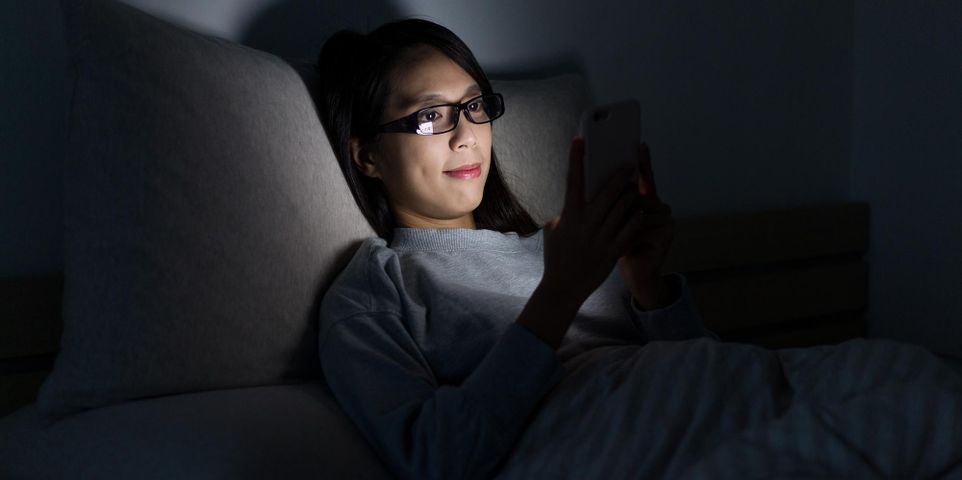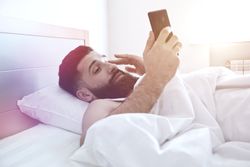How Electronics & Phone Screens Lead to Sleep Problems

Getting a good night’s sleep is crucial for your health, with studies showing that those who have sleep problems, like insomnia, experience memory issues and loss of cognitive function. Experts who treat and diagnose sleep disorders often note the negative impact technology can have. If you tend to bring your smartphone, tablet, or laptop to bed with you, here’s what you should know about electronics and their effect on your ability to rest.
Understanding the Correlation Between Electronics & Sleep Problems
How Do Laptops, Tablets & Phones Disrupt Your Sleep?
Televisions and smartphones emit a blue light that naturally suppresses melatonin, an essential hormone that regulates your sleep cycle. Thus, it can be more challenging to fall asleep after staring at your screen. Furthermore, the act of scrolling through social media, answering emails, or watching a show keeps your mind alert, which can lead to on-going sleep problems.
 Even after you finally drift off to slumber, if you neglected to turn off your phone or close your computer, the arrival of a text, call, or email creates noises which can wake you up in the middle of the night. Since you need to go through all five stages of sleep in succession to get their full benefit, that supposedly harmless dinging can force you to start the process all over again, with the result being you might never fully complete it.
Even after you finally drift off to slumber, if you neglected to turn off your phone or close your computer, the arrival of a text, call, or email creates noises which can wake you up in the middle of the night. Since you need to go through all five stages of sleep in succession to get their full benefit, that supposedly harmless dinging can force you to start the process all over again, with the result being you might never fully complete it.
How Can You Minimize the Impact of Technology on Sleep Patterns?
The best way to reduce the impact of electronics on your sleep routine is to turn your bedroom into an oasis and refrain from using these devices for at least 30 minutes before bedtime. Remove televisions and other electronic devices from the room so you won’t be tempted to watch them or scroll through apps. Once in bed, if you’re having trouble falling asleep, opt to read a book or magazine so your eyes have a break from blue light.
Glacier Headache & Sleep Medicine, based in the heart of Kalispell, MT, has helped residents across Flathead County manage sleep problems like insomnia and narcolepsy since 1995. Independently-owned and accredited by the American Academy of Sleep Medicine, you can trust this team of sleep disorder experts to help you get the rest you need. To schedule an appointment, call the office today at (406) 752-1729. For more sleep testing information, visit their website.
About the Business
Have a question? Ask the experts!
Send your question

